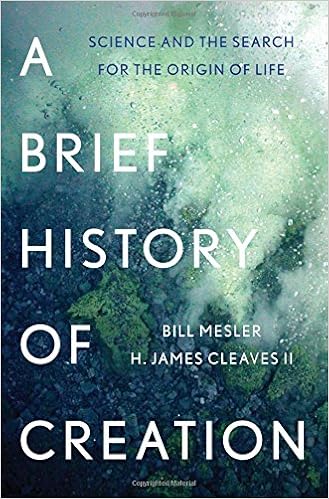 From “This is how science lost God: Atheism, evolution and the long road to Richard Dawkins’ latest Twitter controversy,” a book excerpt from A Brief History of Creation at Salon:
From “This is how science lost God: Atheism, evolution and the long road to Richard Dawkins’ latest Twitter controversy,” a book excerpt from A Brief History of Creation at Salon:
Voltaire’s views on religion, like his views on nearly everything else, were sometimes arbitrary and often contradictory. They were united in their hatred of superstition, and beyond that, little else. At times, his argument for God could appear utilitarian. He worried about whether morality could exist in a world devoid of a supreme being, a world in which good and evil were all relative. “If God did not exist,” he wrote, “it would be necessary to invent him.” Voltaire had a habit of quoting himself, a backhanded way of elevating his own importance. That quote was one of his favorites.
But there was a deeper reason for Voltaire’s advocacy of the divine in the face of this now open disbelief: Voltaire really did see the natural world as proof of a divine intelligence. In the “Dictionnaire,” he had ridiculed the notion of an active God. But he did believe in an ultimate creator, what he called a “Supreme Infinite,” responsible for creation, after which the world existed as it had always existed. … Nature had laws, but laws that fit the plan of a creator. They were an “intelligent design,” as such a notion would one day be known. Voltaire’s view of the world was much the same as that held by Newton, another deist. In the book on Newton that Voltaire had completed at Cirey, he had written, “If I examine on the one hand a man or a silkworm, and on the other a bird or a fish, I see them all formed from the beginning of things.” The world may indeed be a clock, as Descartes suggested, but it had always been a clock. It had been, from the beginning, fully formed. Complete. “A watch,” Voltaire said, “proves a watchmaker.” If he detested organized religion, he detested atheism even more. More.
Apparently Darwin and Dawkins saved the world from Voltaire’s intelligent design concept. For now, at least.
See, for example: Royal Society is rethinking evolution and
Dawkins vs. the flying horse for how that’s all working out.
A Brief History of Creation is not doing badly Could have valuable info.
Amazon Best Sellers Rank: #4,678 in Books (See Top 100 in Books)
- #1 in Books > Science & Math > Evolution > Organic
- #10 in Books > Textbooks > Science & Mathematics > Biology & Life Sciences > Biology
- #22 in Books > Science & Math > Biological Sciences > Biology
Follow UD News at Twitter!